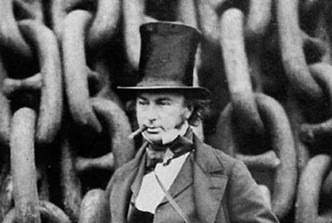In a conversation with Empire Engineering MD, Karl Davis, we discussed what does an owner’s engineer do. For those of you unfamiliar with the term owner’s engineer, we thought we’d start with a definition. This should in theory have been simple, given that whole tenders are built around the term. However, it turned out it’s not quite as straightforward as you might think.
What is an owner’s engineer?
Karl: “If you ask ten people What is an owner’s engineer? you’ll get ten different answers. Some people will say that what our offshore foundation engineers and project managers do when they’re seconded to support a developer’s team is work as an owner’s engineer. But I would say that owner’s engineer is something a bit broader than either of those. If I was going to define it, I would say that it’s an additional engineering organisation that supports a windfarm developer with breadth and depth that they don’t hold internally. It’s filling holes either in terms of competence or the number of skilled people they need to deliver the project.”
Principal Engineer and Partner at Empire Engineering, Nick Howard, supports Karl’s take on this. We asked Nick for his thoughts and he said “for me, to describe an engineering consultancy as having an owner’s engineer role, you have to have more than one person involved in the project. It’s always bigger than a single seconded engineer with expert skills.”
So, despite the term itself making it look as if a single person qualifies as an owner’s engineer, one thing everybody seems to agree on is that it’s not just that one person – it’s an engineering consultancy.
Given the broad definition, what does a scope for an owner’s engineer look like?
Karl: “The issue with the definition of owner’s engineer is the reason we see tenders going out for similar services, but one will be billed as a tender for an owner’s engineer and another, where exactly the same thing is required, won’t be.”
“When we see the scopes for owner’s engineer coming out for offshore wind developments, they can be anything. They can be quite specific, or they can be really, really broad. It could be certain competences they’re looking for, which are defined in the scope and other times it’s just a very general brief of ‘we know we are going to need some help but we’re not quite sure what for yet.’
“Often a developer will need to outsource because they’ve got a small in-house engineering team, who they know won’t be able to deliver everything they need to get the project through the first stage to FID, for example. They need more help to get there now. One way they could do that is to package up scopes of work and send them out, get them done, and bring them back and manage it. But an alternative way is you bring in an owner’s engineer that essentially helps you define those scopes and perhaps perform them or maybe outsources them. They’re an additional helping hand. That’s the way I think is useful to see it. The help needed could be small or it could be really big, depends on what that project or that developer needs.
Why don’t developers just bring the owner’s engineer skillset inhouse?
Karl: “A couple of reasons, firstly, you need a stack of competence over a broad scheme. And secondly, the work you want to outsource is probably quite peaky: you may only need the expertise for six months, and so it doesn’t make financial sense to maintain it inhouse all the time, like some companies do. So Orsted for example, won’t typically get owner’s engineers; they’ve just hired all the skills they need. They’ve got a big team, but they’ve got a heap of projects that they can use them on all the time. But other developers don’t have the diversity across their portfolio or just haven’t been able to hire all the people they need
“If you’re a developer and you’ve got certain budgets for developing your project, then having to develop a whole engineering team of incredible breadth to do all this is a big burden financially.
“And overlaid on that, there’s the current skill shortage in offshore wind development. Even if you did decide to hire, you’re going to have a challenge right there.”

Ian Tran, Graduate Engineer

Amir Jafari, Graduate Engineer
How have market conditions influenced Empire’s own hiring strategy?
Karl: In recent months, we have made a strategic shift in our approach to hiring. We are meeting the skills gap in offshore wind head-on and we believe this will help to cement our long term growth plans. In addition to hiring experienced heads, we are now actively looking to recruit more junior members to the team. Empire Engineering has a part to play in training up the newest generation of engineers. I am looking to share this responsibility with our existing team leads – a team effort in the truest sense of the phrase.
What is clear to me is that our industry requires an influx of skills in order to scale at the pace being asked of us. I am determined that here at Empire we drive that forward.
We are proud of our team of engineers here at Empire. Each one brings something different to the table in terms of skill and experience that enables us to provide the best service to our clients. We will continue to build our presence in the offshore wind industry and to grow an ambitious business with the most talented team.
I for one am excited about the future possibilities!
Talk with a specialist
We've been a part of some of the worlds most exciting and
complicated projects in offshore wind.
If you need more eyes, brains and hands, we're ready to help.
Empire specialists can effectively and efficiently assist in providing owner’s engineer services. To find out more, please get in touch with the team at Empire Engineering.


